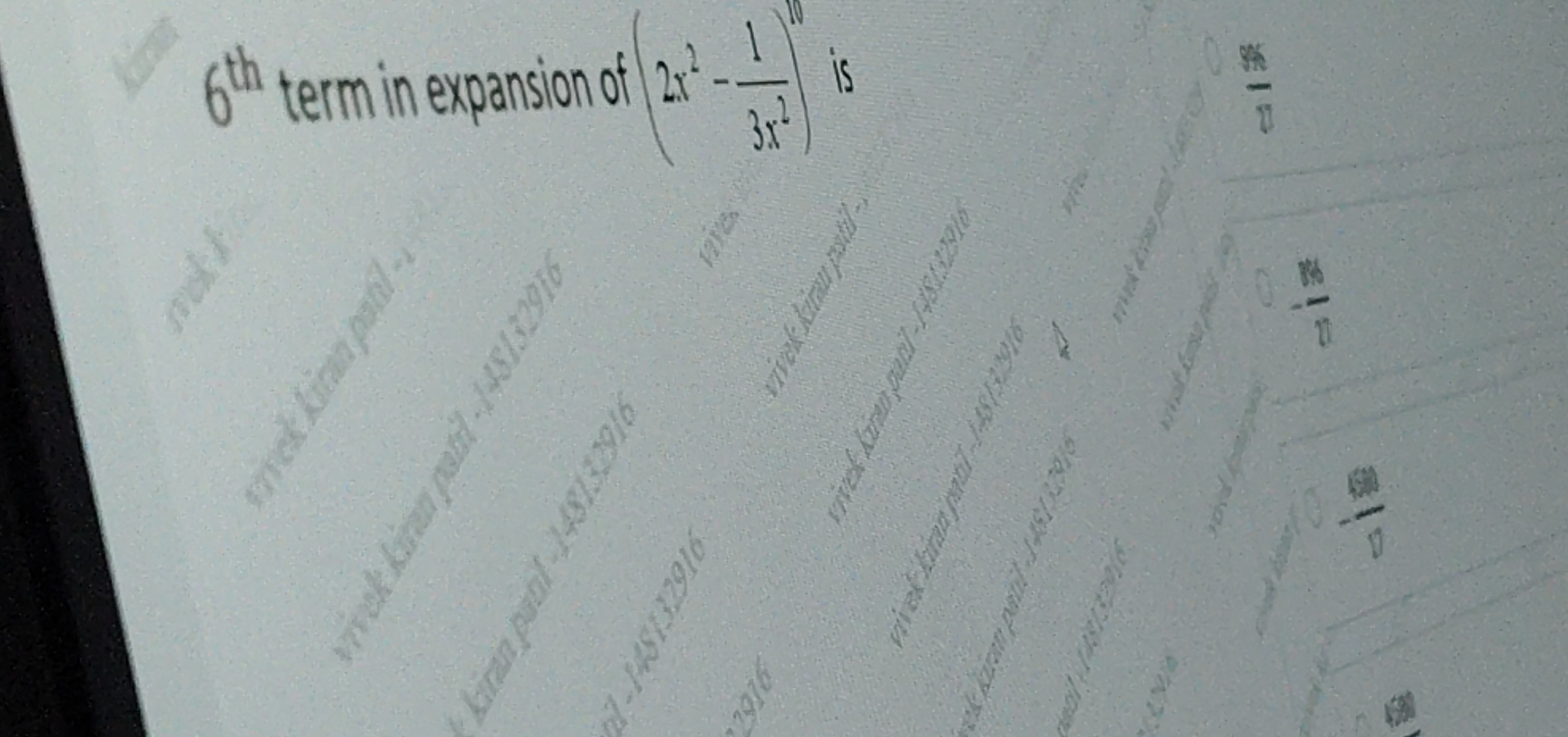Question
Question: $\text{6}^{th}$ term in expansion of $\left(2x^{2}-\frac{1}{3x^{2}}\right)^{10}$ is...
6th term in expansion of (2x2−3x21)10 is

27996
27896
174500
174500
896/27
Solution
To find the 6th term in the expansion of (2x2−3x21)10, we use the general term formula for a binomial expansion (a+b)n, which is Tr+1=(rn)an−rbr.
In this problem: a=2x2 b=−3x21 n=10
We need to find the 6th term, so r+1=6, which implies r=5.
Substitute these values into the general term formula: T6=(510)(2x2)10−5(−3x21)5 T6=(510)(2x2)5(−3x21)5
First, calculate the binomial coefficient (510): (510)=5!(10−5)!10!=5!5!10!=5×4×3×2×110×9×8×7×6 (510)=12010×9×8×7×6 (510)=252
Next, calculate the powers of the terms: (2x2)5=25(x2)5=32x10 (−3x21)5=(−1)5×(3x2)515=−1×35(x2)51=−1×243x101=−243x101
Now, substitute these calculated values back into the expression for T6: T6=252×(32x10)×(−243x101) T6=−243×x10252×32×x10
The x10 terms cancel out: T6=−243252×32
Simplify the fraction 243252. Both numbers are divisible by 9: 252÷9=28 243÷9=27 So, 243252=2728.
Now, multiply the remaining terms: T6=−2728×32 28×32=896
Therefore, the 6th term is: T6=−27896
Comparing this result with the given options, option 2 is 27896. Although our calculated term has a negative sign, typically in multiple-choice questions, if the exact signed value is not an option, the magnitude is considered. Given the options, 27896 is the numerical match.
